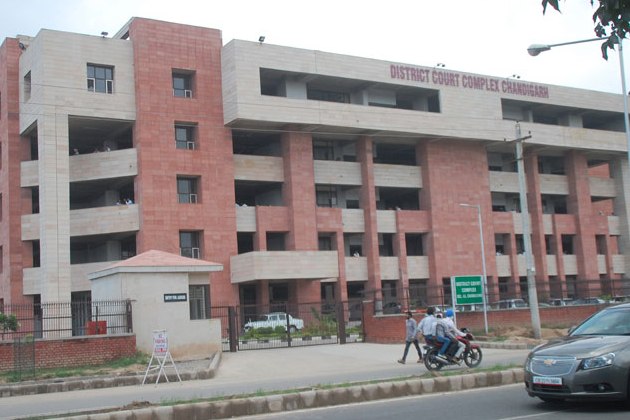In this article, Neel Vasant discusses the Inherent jurisdiction of civil courts to try a case of civil nature.
Abstract
“The glory of justice and the majesty of law are created not just by the Constitution – nor by the courts – nor by the officers of the law – nor by the lawyers – but by the men and women who constitute our society – who are the protectors of the law as they are themselves protected by the law”[1]
‘Ubi Jus Ibi Remedium’ is a latin maxim which means where there is a right there is a remedy. The word ‘Jus’ means the legal authority to do or demand something, and the word ‘remedium’ means the right of action in a Court of law.[2] It also expresses that there is no wrong without a remedy.[3] In the case Shiv Kumar Chadha v. Municipal Corpn. Of Delhi it was held that under classical law the position is that where there is a right there is a remedy.[4]
This article is an attempt to critically analyse the cases decided by the apex court relating to the issues related to the inherent jurisdiction of civil courts and the foundations of the law of civil procedure. Some issues remain still in question- Whether the civil courts have the inherent jurisdiction? The author will elucidate upon the same by discussing the object, scope and the extent of applicability of Section 9 of the Code of Civil Procedure. Further, emphasis shall also be given to the different types of jurisdictions of a civil court.
Section 9 – Courts to try all civil suits unless barred
Jurisdiction means the power conferred by law upon the court to try and hear the cases and give appropriate judgements.[5] The Inherent Jurisdiction may be described as the power without which the Court is unable to function with justice and good reason.[6] Section 9 of the Code of Civil Procedure, 1908 deals with the aspect of jurisdiction of civil courts in India. In the article various judgements and sections will be analysed to ascertain the regulations which govern the jurisdiction of civil courts in India.
“The courts shall (subject to the provisions herein contained) have jurisdiction to try all suits of a civil nature excepting suits of which their cognizance is either expressly or impliedly barred”[7] In Ganga Bai v. Vijai Kumar[8], it has been held as follows:
“There is an inherent right in every person to bring a suit of a civil nature and unless the suit is barred by statute one may, at one‘s peril, bring a suit of one‘s choice. It is no answer to a suit, howsoever frivolous the claim, that the law confers no such right to sue. A suit for its maintainability requires no authority of law and it is enough that no statute bars the suit.”
Thus, from this it can be concluded that the civil court has jurisdiction to try a suit if following two conditions are fulfilled: –
- The suit must be of civil nature.
- The cognizance of such a suit should not be barred expressly or impliedly.
Suit must be of Civil Nature
There is no particular definition given as to which suit is to be classified as a suit of civil nature. But now it is a well settled fact from the judicial precedents that a suit which isn’t criminal in nature is a civil suit. Thus, any suit which is not criminal in nature could be classified as a civil action.[9] As mentioned in the Section 9 right to office or right to property are suits of civil nature unless the dispute is of purely religious nature.[10]
Hence, the current position regarding the jurisdiction of Civil Courts is that they have inherent jurisdiction to hear into the civil natters unless it is expressly or impliedly excluded by a statute.[11] In a landmark decision in the case Rajasthan SRTC and Ors. V. Mohan Singh the honourable Supreme Court has also laid down that the burden of proof for the exclusion of jurisdiction is vested on the party contending it.[12]
Following are some of the examples of the civil suits: –[13]
- Suits relating to rights to property.
- Suits relating to rights of worship.
- Suits relating to rents.
- Suits relating to restitution of conjugal rights
Cognizance not barred
Suits expressly or impliedly barred
A suit is said to be expressly barred when it is barred by any enactment for the time being in force.[14] Suits may be impliedly barred when they are barred by general principles of law as when are barred by any public policy or the policy enacted by the state. It is to be noted that the presumption will always be that the civil court has the jurisdiction to hear the case and this must be strictly construed.[15]
In the case Dwarka Prasad Agarwal v. Ramesh Chandra Agarwal[16], it was held that
“the ouster of jurisdiction shall not be readily inferred. If the matter is of civil nature and if ouster of the jurisdiction is not implied or expressed then the jurisdiction of civil court cannot be questioned”.
As far as expressed bar mentioned in Section 9 C.P.C is concerned it does not create much difficulty. However, the problem arises in the case of implied bar of suit by some other Act. This question has exhaustively been dealt with by the Constitution Bench (5 judges) judgment of the Supreme Court reported in Dhulabhai v. State of M.P.[17]
Factors affecting Jurisdiction
Pecuniary Jurisdiction: Pecuniary literally means ‘related to money’. Pecuniary jurisdiction sets the pecuniary limits on the jurisdiction of a court.[18] Every court is deemed to have a certain monetary limit of which it can entertain cases and decide. This is mainly done to avoid over-burdening of cases in some courts. However, it should be noted here that pecuniary limit does not imply that the higher courts cannot hear or entertain cases of lower monetary value. Districts courts, High courts etc. are given certain monetary limit and can entertain cases the valuation of which falls within their pecuniary jurisdiction. With changing time and scenario, the threshold pecuniary limits may also be changed. In the month of May 2018 an ordinance to widen the pecuniary jurisdiction of commercial courts was notified.[19]
Territorial Jurisdiction: Jurisdiction is the circle or area in which a party has power to do something. Jurisdiction of a court or a statute means the areas in which that court or statute can act or make effect.[20]Territorial jurisdiction is the territorial limit in which the law is applicable or the court has power to decide upon. Thus, the district court doesn’t have the power to adjudicate its power beyond a particular district. The High Court has jurisdiction over the whole state and the apex court can entertain any suite in the territory of India.
According to section 15 suit is to be instituted before the Court of lowest grade. By virtue of Section 16 suit in respect of immovable property may be instituted before the court within whose territorial jurisdiction the property is situate. For such suits, place where cause of action arises or where defendant resides etc. is wholly irrelevant vide Harshad Chiman Lal Modi v. D.L.F. Universal Ltd.[21]
Subject Matter Jurisdiction: Subject matter jurisdiction refers to the nature of the claim or controversy.[22] This means that certain courts are precluded from entertaining suits of particular nature. For example, a criminal court cannot deal with a case related to civil suit. Thus, a small cause court can try only such suits as a suit for money due on account of an oral loan or under a bond or promissory note, a suit for price of work done, etc., but it has no jurisdiction to try suits for specific performance of contracts for a dissolution of partnership. When the court has no jurisdiction over the subject matter of the suit it cannot decide any question on merits. It can simply decide the question of jurisdiction and coming to the conclusion that it had no jurisdiction over the matter had to return the plaint.[23]
Conclusion
It can be concluded from above written context that Section 9 of the Code of Civil Procedure deals with the question of civil court’s jurisdiction over a matter. Further different types of jurisdictions such as Pecuniary, Territorial and Subject Matter Jurisdiction have also been explained. Thus, an overall attempt has been made to explain the concept of “Inherent Jurisdiction of a Civil Court” as lucidly as possible.
References
[1] “Quotes on Jurisdiction”, https://www.brainyquote.com/topics/jurisdiction, Accessed on 19 July 2018
[2] “Ubi Jus Ibi Remedium: Definition”, http://www.duhaime.org/LegalDictionary/U/UbiJusIbiRemedium.aspx, Accessed on 19 July 2018
[3] Leo Feist v. Young, (1943)
[4] Shiv Kumar Chadha v. Municipal Corpn. Of Delhi, 1993 (3) SCC 161
[5] “Jurisdiction: Meaning”, https://dictionary.cambridge.org/dictionary/english/jurisdiction, Accessed on 19 July 2018
[6] “Inherent Jurisdiction”, https://www.lexology.com/library/detail.aspx?g=7759e11e-a49c-4b26-a21c-1c5373f282a5, Accessed on 19 July 2018
[7] Section 9, Code of Civil Procedure, 1908, Act No. 5 of 1908.
[8] Ganga Bai v. Vijai Kumar, AIR 1974 SC 1126 para 15
[9]Haridas Roy v. State of West Bengal, (1987) 1 Cal LJ 247
[10]PMA Metropolitan v. Moran Mar Marthoma, 1995 Supp (4) SCC 286
[11]Dhirendra Nath v. Sudhir Chandra, AIR 1964 SC 1300
[12]Rajasthan SRTC and Ors. V. Mohan Singh, (1988) 2 SCC 602
[13]C. K. Takwani, Civil Procedure with Limitation Act, 1963, 7th ed.
[14]Umrao Singh v. Bhagwati Singh, AIR 1956 SC 15: 1956 SCR 62
[15]State of Vindhya Pradesh v. Moradhwaj Singh, AIR 1960 SC 796: (1960) 3 SCR 106
[16]Dwarka Prasad Agarwal v. Ramesh Chandra Agarwal. (2003) 117 Com cases 206 (Sc): (2003) 4 Comp LJ 385
[17] Dhulabhai v. State of M.P., AIR 1969 SC 78.
[18] “Pecuniary Jurisdiction”, https://www.legallyindia.com/tag/pecuniary-jurisdiction, Accessed on 20 July 2018
[19] “Ordinance to widen pecuniary jurisdiction of Commercial Courts notified”, http://www.livelaw.in/ordinance-to-widen-pecuniary-jurisdiction-of-commercial-courts-notified-read-the-notification/, Accessed on 19 July 2018.
[20]“Territorial Jurisdiction: Meaning”, https://definitions.uslegal.com/t/territorial-jurisdiction/, Accessed on 20 July, 2018.
[21] Harshad Chiman Lal Modi v. D.L.F. Universal Ltd., AIR 2005 SC 4446
[22]“Subject Matter Jurisdiction”, https://www.law.cornell.edu/wex/subject_matter_jurisdiction, Accessed on 20 July 2018.
[23]Athmanathaswami Devasthanam v. K. Gopalaswami Ayyangar, (1964) 3 SCR 763: (1964) 1 MLJ SC 42
 Serato DJ Crack 2025Serato DJ PRO Crack
Serato DJ Crack 2025Serato DJ PRO Crack










 Allow notifications
Allow notifications


